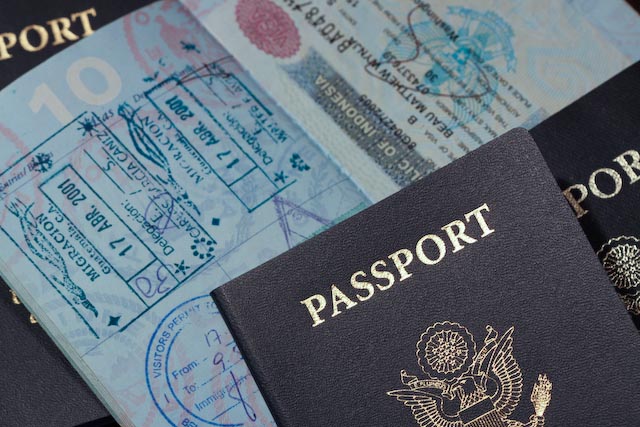The ETIAS will gather information on all those travelling visa-free to the European Union to allow for advance irregular migration and security checks. This will contribute to a more efficient management of the EU’s external borders and improve internal security, whilst at the same time facilitating legal travel across Schengen borders.
The Commission proposed to establish a European Travel Information and Authorisation System (ETIAS) to strengthen security checks on visa-free travellers. This follows the announcement in September by President Juncker in his 2016 State of the Union address, and is a first deliverable of the priorities for action identified in the Bratislava Roadmap. The ETIAS will gather information on all those travelling visa-free to the European Union to allow for advance irregular migration and security checks. This will contribute to a more efficient management of the EU's external borders and improve internal security, whilst at the same time facilitating legal travel across Schengen borders.
First Vice-President Frans Timmermans said: "Securing our borders and protecting our citizens is our first priority. ETIAS will close an information gap by cross-checking visa exempt applicants' information against all our other systems. At the same time, the future ETIAS will be easy, quick, cheap and effective."
Migration and Home Affairs Commissioner Dimitris Avramopoulos said: "ETIAS is the missing link in our border management, connecting the dots with our migration and security policies and enhancing Schengen entry for at least 95% of visa-free travellers. Europe's openness does not come at the cost of its security."
Security Union Commissioner Julian King said: "Terrorists and criminals don't care much for national borders. The only way to defeat them is by working together effectively. ETIAS will help do that: by spotting problem individuals and stopping them from coming, we'll enhance Europe's internal security."
The ETIAS authorisation is not a visa; it is a lighter and more visitor-friendly regime. Nationals of visa liberalisation countries will still be able to travel without a visa but will have to obtain a simple travel authorisation prior to their travel to the Schengen Area. This will help identify persons who may pose an irregular migration or security risk before they arrive at the border and significantly enhance the security of the external borders. The ETIAS will also bridge an existing information gap on visa-free travellers by gathering information that could be vital to Member States' authorities in advance of their arrival at the Schengen border. The ETIAS is therefore an important step forward towards stronger and smarter information systems for borders and security. The ETIAS will also facilitate the crossing of the external border by visa-exempt third country nationals. Travellers will have a reliable early indication of entry into the Schengen area which will thus substantially reduce the number of refusals of entry.
In order to decide whether to issue or reject a request to travel to the EU, an automated system will conduct prior checks, in full respect of fundamental rights and personal data protection. Although the final decision to grant or refuse entry will always be taken by the national border guards who are conducting border controls under the Schengen Borders Code, prior verifications of all travellers will facilitate border checks and ensure a coordinated and harmonised assessment of visa-exempt third-country nationals.
The ETIAS will be managed by the European Border and Coast Guard in close cooperation with the competent authorities of the Member States and Europol. The Agency eu-LISA will develop and provide technical management of this information system.
The key functions of ETIAS will be to:
- Verify the information submitted by visa-exempt third country nationals (such as information related to identity, travel document, residence information, contact details etc.), via an online application ahead of their travel to the EU's external borders, to assess if they pose a risk for irregular migration, security or public health;
- Automatically process each application submitted via a website or a mobile application against other EU information systems (such as SIS, VIS, Europol's database, Interpol's database, the EES, Eurodac, ECRIS), a dedicated ETIAS watch list (established by Europol) and targeted, proportionate and clearly defined screening rules to determine if there are factual indications or reasonable grounds to issue or refuse a travel authorisation;
- Issue travel authorisations. In cases where no hits or elements requiring further analysis are identified, the travel authorisation is issued automatically within minutes after the application has been submitted.
An authorisation will be obtained through a procedure that is simple, cheap and fast; in the vast majority of cases, an authorisation should be given in a matter of minutes. The authorisation, the application for which will not take more than ten minutes to fill in and which only requires a valid travel document, will be valid for a period of five years and for multiple travels. An application fee of €5 only will apply to all applicants above the age of 18.
Tom Jenkins, ETOA’s chief executive commented: “Schengen is a success story which has transformed the visitor economy in Europe. With a single visa it has facilitated trouble-free cross-border travel within the zone. It is an example of a civilizing influence that has brought great commercial and cultural benefit. The reappearance of temporary controls reminds us that we cannot take this for granted. Europe remains a very safe destination.
ETIAS will be successful only if it improves the arrivals process for ETIAS holders in European gateways. It will require careful consultation and implementation.
Cost must remain minimal: this cannot be allowed to become an excuse to tax visitors. The application process must be user-friendly and in the language of the applicant. There has to be a reciprocal offer of service; time spent in airport immigration zones must reduce for visa-free travellers who have been pre-cleared through the new system. The introduction of the ESTA regime for US-bound travellers caused an immediate drop-off in volume; we must avoid this with ETIAS. If it increases the number of origin markets on Schengen’s visa-free list, then this will be a long overdue and welcome development.
Above all, if implemented, ETIAS must be properly communicated and supported in Europe’s origin markets worldwide. ETOA will work with its partners and the Commission to that end.”
Vicky is the co-founder of TravelDailyNews Media Network where she is the Editor-in Chief. She is also responsible for the daily operation and the financial policy. She holds a Bachelor's degree in Tourism Business Administration from the Technical University of Athens and a Master in Business Administration (MBA) from the University of Wales.
She has many years of both academic and industrial experience within the travel industry. She has written/edited numerous articles in various tourism magazines.












































































































































































